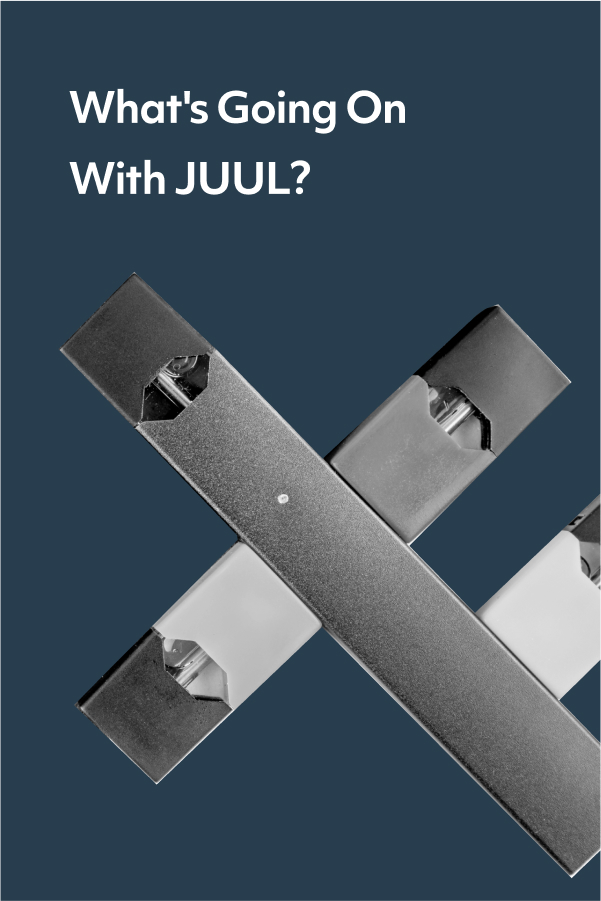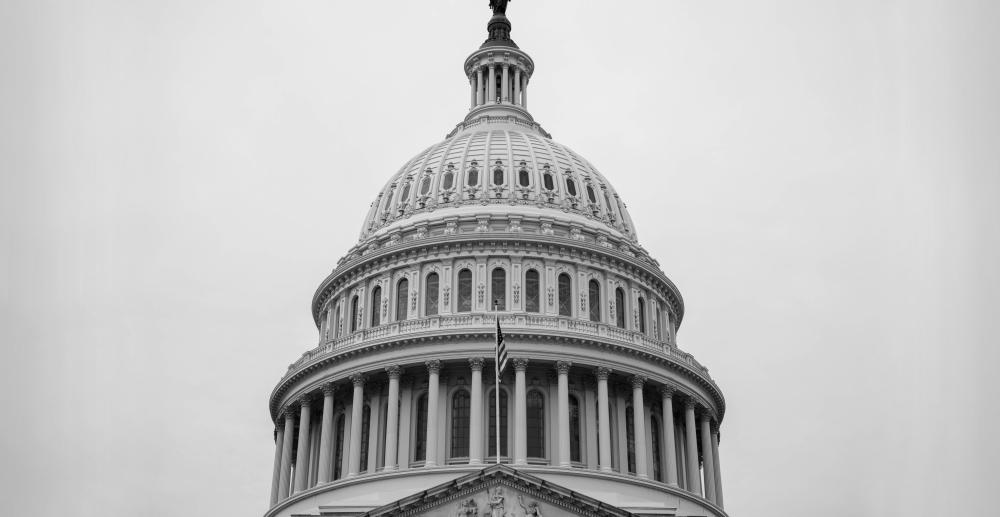If you vape, the news has probably been frustratingly unclear lately. Is JUUL banned? Will this make vaping illegal? People are confused! Here is a brief rundown of what’s happening with JUUL and what that means for vaping and e-cigarettes in general.
What is JUUL?
JUUL is a popular e-cigarette company with disposable, non-refillable cartridges they call JUULpods. The e-cigarette device uses a battery to heat up the ingredients inside the pod, creating vapor that a person inhales. Each pod is roughly equivalent to a pack of cigarettes.
JUUL takes up about 40% of the e-cigarette/vaping market. In 2020, the e-cigarette & vape market in the U.S. was valued at over six billion dollars, so this is big business.
There has been a big, legal back-and-forth
In March of 2021, a new law expanded the definition of an FDA-regulated “tobacco product” to cover lab-made nicotine. Before this, the term “tobacco product” only covered things made from old school, plant tobacco. This change brought vapes and e-cigarettes under the umbrella of FDA (US Food and Drug Administration) standards and guidelines.
Now with oversight of these products, the FDA required JUUL to submit information about their devices and the liquid contained in the pods. JUUL provided some information … but the FDA found it to be inadequate for the products to stay on the market. They identified toxins leaching from JUULpods, which may be a danger to users. At the end of June 2022, the FDA banned JUUL from selling and distributing its products.
JUUL believes that this ruling is discriminatory and unfair. They claim that none of the four chemical toxins that the FDA identified appeared in JUUL’s own studies of the vapor from its products.
In early July, a court order stayed the FDA ban on JUUL products being sold while a more in-depth investigation is conducted. But according to a tweet from the FDA Tobacco Twitter account, “The stay and the agency’s review does not constitute authorization to market, sell, or ship JUUL products.” A stay means that the order was basically put on hold, but not erased or reversed.
What does this ban say about the safety of vaping?
This ban highlights the new power the FDA has to respond to safety concerns about vaping and e-cigarettes. Vaping is extremely popular among adults and youth alike. Although it is believed to be less dangerous than OG smoking (sometimes called “burned tobacco”), it still comes with a multitude of health effects. These can include scratchy throat, coughing, dizziness, heartache, heart palpitations, shortness of breath, and the sense of taste diminishing. Long-term effects of vaping include severe lung injury, seizures, asthma, popcorn lung, strokes, and heart attacks.
Vaping has also been blamed for the rise in Acute Respiratory Distress Syndrome (ARDS) also known as “wet lung” syndrome. ARDS causes flu-like symptoms and can include rapid breathing, nausea, low blood-oxygen levels, low blood pressure, confusion, and extreme tiredness. There is no true cure for ARDS, but treatment usually consists of oxygen treatments. Even with oxygen treatments, your lungs are not guaranteed to return to 100% functionality.
Opponents of vaping are especially concerned with its popularity among teens. While cigarette smoking has decreased in younger demographics in the U.S., vaping (especially sweet and fruity flavors) has seen a sharp increase. The CDC reports that e-cigarettes have been the most commonly used tobacco product among youth since 2014. JUUL makes up a large percentage of teen vaping.
How will this affect people who vape or use e-cigarettes?
The initial ban on JUUL products caused a rash of fear-buying among consumers who didn’t want to run out. Most vape juice and e-cigarette cartridges contain nicotine, which is an addictive substance, and the behavior of smoking is also often very habitual. There are also many former smokers of burned tobacco products who use vapes and e-cigarettes as part of their smoking cessation strategy. So it is understandable that people who use these products would be upset about losing access to them.
At this time, vaping is legal and several kinds of vapes and e-cigarettes have passed the FDA’s review process. It is likely that this ban will lead to tighter regulation on vape products, without removing them from the market.










